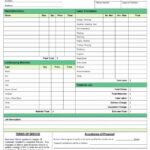Accounting Period: What It Is, How It Works, Types, Requirements
Content

Because business activities do not cease or drastically change when one accounting period finishes and another begins. Accounting periods are created for reporting and analytical purposes, and accrual accounting allows consistent reporting. According to the Accounting Period Concept, accounting activities should be separated into smaller intervals to measure business performance. One year is the standard accounting time for reporting the performance of the business to outsiders.

Accordingly, Sage does not provide advice per the information included. These articles and related content is not a substitute for the guidance of a lawyer , tax, or compliance professional. When in doubt, please consult your lawyer tax, or compliance professional for counsel.
Accounting Period Activities Run in Sequence
They can also use accounting periods to compare the performance of two or more companies during the same period of time. The cash flow statement discloses how well an entity generated cash to fund its operating expenses, settle its debt obligations, and fund its investments during the reporting period. A fiscal year sets the start of the reporting period to any date, and financial data is aggregated for a year after said date. For example, a fiscal year beginning November 1 would end October 31 of the following year. The fiscal year should ideally end on a date when there is a low business activity. At this point, there are usually fewer assets and liabilities to be audited.
Xhibit 1 below shows the normal activities of the accounting cycle across one accounting period. Use Wafeq to manage your accounting and to keep all your expenses and revenues on track, plus manage payroll and inventory, and generate over 30 financial reports from one place. The revenue recognition principle is a key accounting theory utilized in the accrual method of accounting. Although the company may alternatively desire to sum up accounting data by quarter , half year , or a whole fiscal year, this specifies that the accounting period is the month . The concept of an accounting period is used to segment the life of a business into equal pieces. However, this is not obligatory and many businesses choose to end their year on March 31st and begin a new fiscal year on April 1st.
Accounting year – What is an accounting year?
The depreciation and consequent spreading of expenses across several periods, using the depreciation example from earlier, better align the usage of fixed assets with its capacity to produce income. According to the matching principle, a cost must be recorded during the same accounting period as the income it produced. Accounting Period Definition Where a company’s accounting period straddles a financial year in which the corporation tax rate has changed, the company’s profits for that period are split. At the end of the accounting period, the revenue accounts are totalled and the balance, positive or negative, transferred to the profit and loss account.

To disable the feature you must delete all created accounting periods. Today, of course, journals and ledgers usually exist as software and data in electronic accounting systems. Bookkeepers still make transaction entries, of course, but other individuals also contribute entries as well.
Subscribe to our Sage Advice Newsletter
Add accounting period to one of your lists below, or create a new one. Stations built or rebuilt in a particular accounting period pay the player double freight rates for everything they purchase in that period. However the beginning of the accounting period differs according to the jurisdiction. Arms expenditure regarded as intermediate consumption could, according to this accounting treatment, only refer to sales or exports in a different accounting period.
What is an accounting period of 12 months called?
A Fiscal Year (FY), also known as a budget year, is a period of time used by the government and businesses for accounting purposes to formulate annual financial statements and reports. A fiscal year consists of 12 months or 52 weeks and might not end on December 31.
The time period assumption provides the stakeholders with the reliable and relevant financial information to make reliable business decisions in a timely manner. For example, a business may choose a fiscal year from Feb. 1 to Jan. 31 or observe a week fiscal year, where each year rotates between being 52 or 53 weeks long. If a business wants to select the fiscal year for tax reporting, they can do so by submitting their first income tax return observing that tax year. Usually, the accounting period follows the Gregorian calendar year that consists of twelve months starting from January 1 to December 31. Internally, the accounting period is considered to be a month or a quarter while externally it is for a period of twelve months. The International Financial Reporting Standards allows a 52-week period , instead of a full year, as the accounting period.
The model lets you answer “What If?” questions, easily and it is indispensable for professional risk analysis. Modeling Pro is an Excel-based app with a complete model-building tutorial and live templates for your own models. The complete, concise guide to winning business case results in the shortest possible time. For twenty years, the proven standard in business, government, education, health care, non-profits. Accounting Periodmeans a calendar year unless another twelve-month period is selected by a fiduciary.
How long is an accounting period?
In financial accounting the accounting period is determined by regulation and is usually 12 months. The beginning of the accounting period differs according to jurisdiction. For example, one entity may follow the calendar year, January to December, while another may follow April to March as the accounting period.
It means that the better the company performs, the more money they will build for retirement. Nevertheless, a majority of companies worldwide end their fiscal year accounting periods when the calendar year ends, on 31 December . The matching principle is a fundamental accounting theory that pertains to the usage of an accounting period. According to the https://quick-bookkeeping.net/ matching principle, costs must be recorded within the same accounting period as the related revenue. Reporting and analysis are the two main reasons why accounting periods are set up. Theoretically, a corporation aspires to expand consistently over the course of accounting periods in order to demonstrate stability and a view of long-term profitability.


















































Sobre o Autor